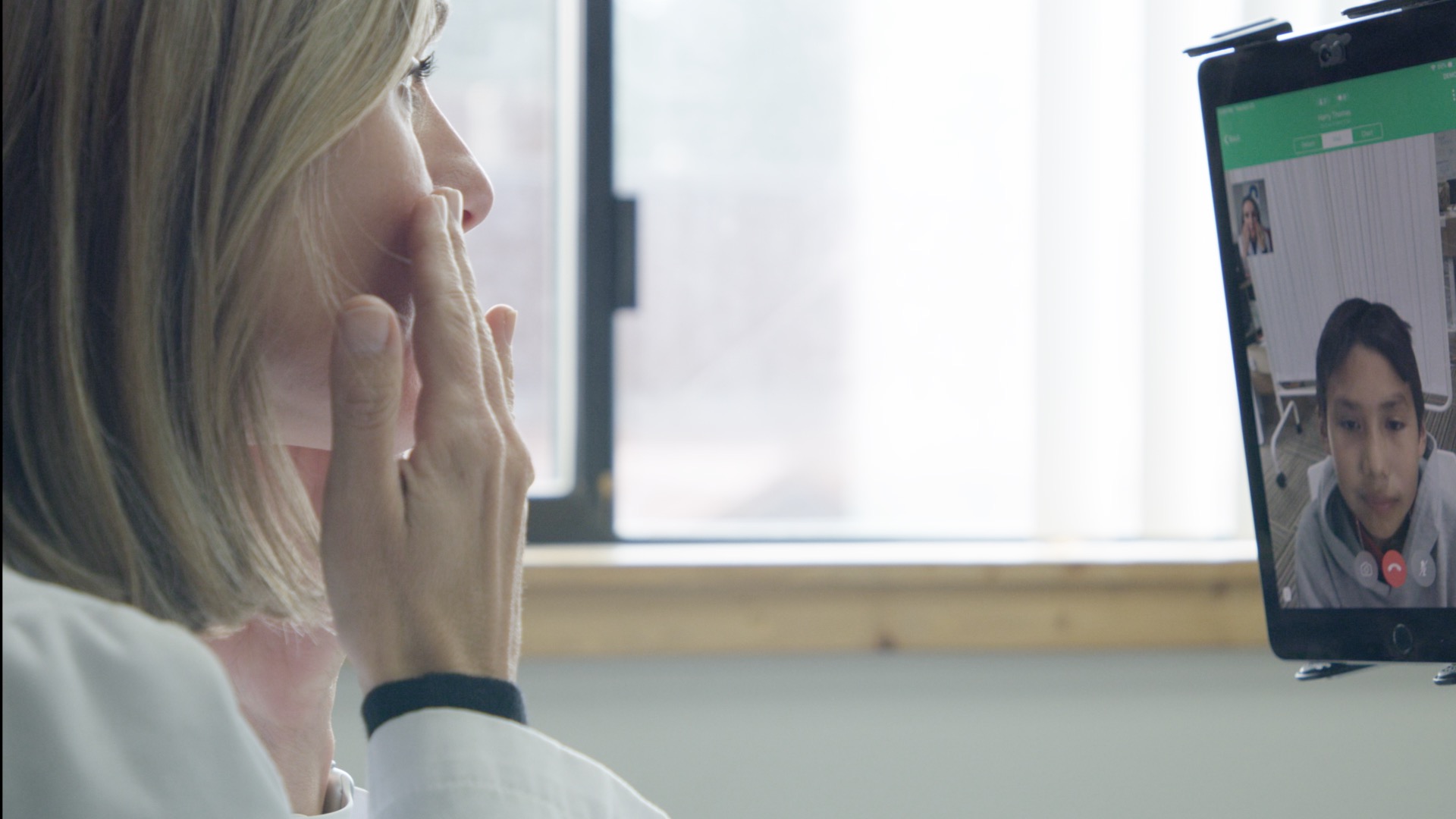
A Hazel Health provider does a telehealth visit with a student. School nurses can use the service to connect students with doctors on demand. Photo credit: Hazel Health
As school districts move classes online due to the Covid-19 pandemic, they’re coming up with plans to so students can still access critical services, such as providing take-home lunches, or giving them laptops so they can attend classes online.
Hazel Health, a telemedicine provider that connects students with physician consults from their school nurse’s office, also adjusted its plans. The startup quickly stood up an at-home telemedicine program for students and their families.

Reducing Clinical and Staff Burnout with AI Automation
As technology advances, AI-powered tools will increasingly reduce the administrative burdens on healthcare providers.
“When Covid first hit, all of our partner schools ended up closing down,” Hazel Health CEO Josh Golomb said in a phone interview. “We’re finding particularly for our families that are in lower-income areas where access is a big issue, Covid has exacerbated access issues that already existed.”
Hazel was founded five years ago by CTO Nick Woods and Vice President of Education Markets Raquel Antunez. It currently serves school districts representing 1.5 million K-12 students, including Denver Public Schools, Clark County School District and San Bernardino City Unified School District. In the last three months, its service has grown by 400%.
The San Francisco-based startup recently raised $33.5 million in series C funding, led by Owl Ventures and Bain Capital Ventures. Centene, UCSF and Uprising also participated in the round.
“If we really wanted to transform healthcare access for kids, the school site makes so much sense,” Golomb said. “Families already have transportation there. It’s a place that families and parents already trust. … It’s a great way for us to increase access for kids to be able to see a doctor.”

The Funding Model for Cancer Innovation is Broken — We Can Fix It
Closing cancer health equity gaps require medical breakthroughs made possible by new funding approaches.
More than 40% of the families in Hazel’s program said they don’t have a primary care physician, and roughly 75% of families get health insurance through Medicaid or CHIP. Golomb said Hazel can connect patients to a local pediatrician or community clinic so they can have one going forward.
Hazel providers can help kids with common conditions like pink eye or the common cold, and unlike school nurses, they can write prescriptions, which parents can pick up on the way home from work. They can also help spot undiagnosed conditions, such as asthma, which can make a big difference. One student had missed 22 days of school the last year, but after he was diagnosed with asthma and began treatment, he only missed five days the following year.
“A lot of times when people think about telehealth today, they think of it as a replacement or competition for local providers. We think of it as the opposite,” Golomb said. “We’ve ID’ed a lot of kids that weren’t being treated that needed someone.”
Correction: A previous version of this article listed Golomb as a co-founder of Hazel. He joined the company as CEO after its founding.








